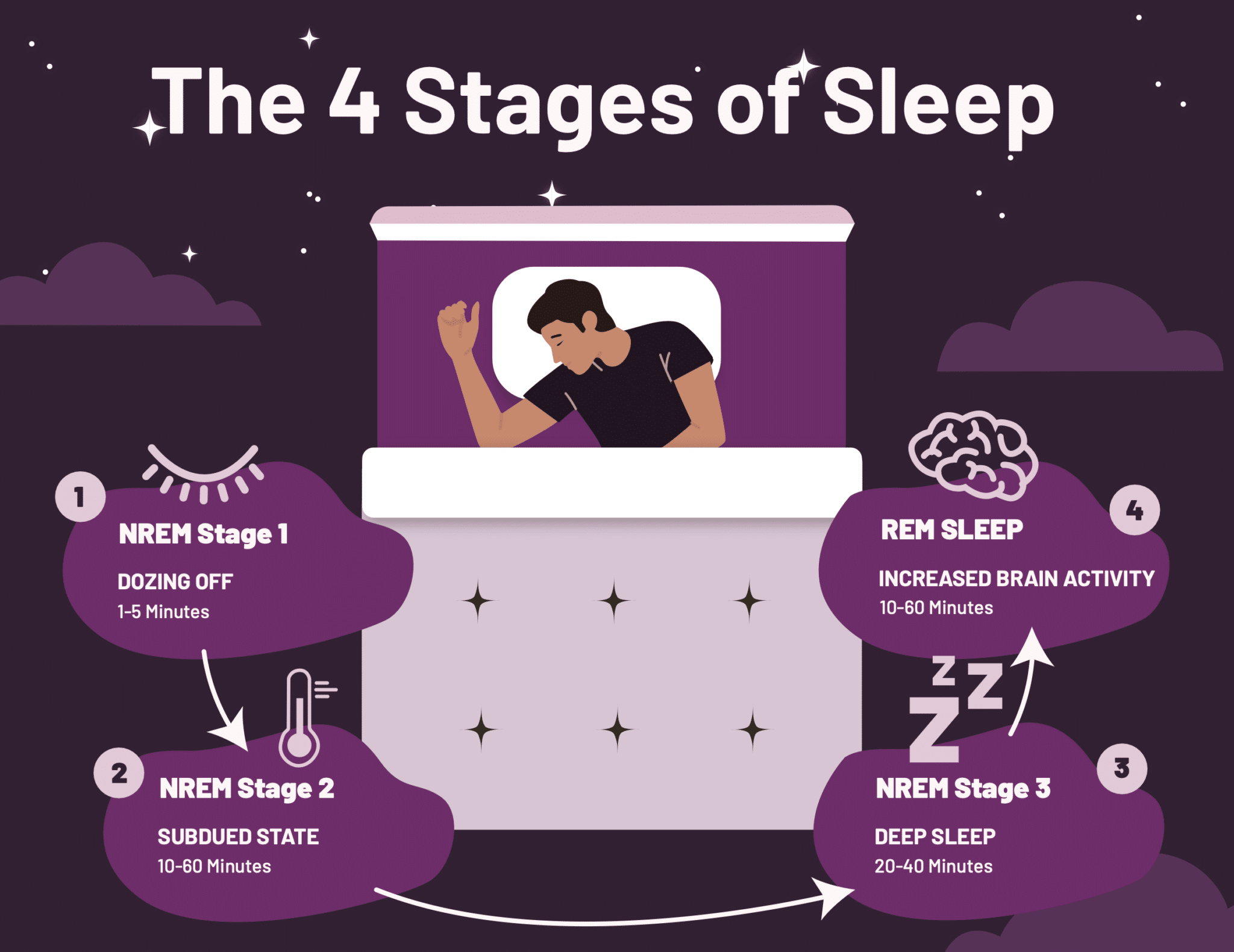Sleep Peptides
The Sleep Cycle
- The body follows a circadian rhythm which tells it when to sleep, wake up, and eat. Hormones such as melatonin have long been known to dictate an individual’s sleep-wake cycle. When released, melatonin helps synchronize the body’s circadian rhythm and allows for multiple processes to occur including: recovery and repair processes, the regulation of menstrual cycles in females, and the prevention of neurodegenerative diseases like dementia.
- The body also produces a similar hormone called Delta-Inducing Sleep Peptide (DSIP) in the part of the brain called the hypothalamus. Studies have also shown correlations between levels of DSIP in the blood and an individual’s circadian rhythm – with higher levels of DSIP in the afternoons and lower levels in the morning. DSIP initiates delta wave sleep, otherwise known as Stage 3 in the sleep cycle.
- Delta sleep is widely regarded as the stage where restorative sleep occurs. This stage of “deep sleep” is key for the body’s recovery and growth processes, regulation of the immune system, and cognitive processes like critical thinking and memory.
- Additional benefits of good quality sleep include improved:
- Daytime alertness
- Cognitive performance and concentration
- Physical performance and recovery
- Stress tolerance
- Mood

Sleep – Peptide Support
- Sleep-promoting peptides are meant to augment an individual’s own natural sleep cycle without causing sedation.
- Considered a neuropeptide, DSIP has been studied in patients with disturbed sleep and insomnia as an alternative therapy for the normalization of their sleep patterns. Synthetic DSIP causes what is termed the “pressure to sleep” due to its ability to initiate delta-wave sleep.
- Additional research has shown that DSIP can also be beneficial in improving sleep quality in patients dealing with chronic pain.
DSIP (Delta-Sleep Inducing Peptide)
- A synthetic peptide made of nine amino acids
- Its sequence is: Trp-Ala-Gly-Gly-Asp-Ala-Ser-Gly-Glu
- Its molecular formula is: C35H49N10O18




